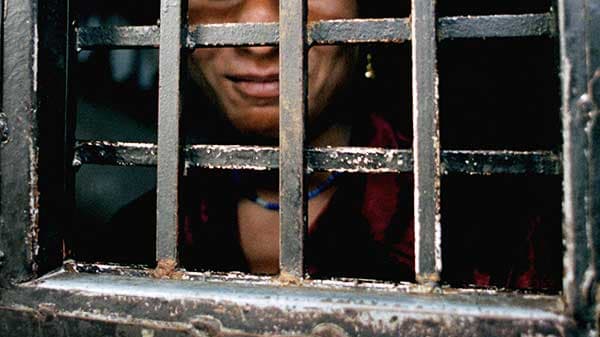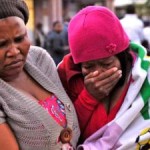/cdn.vox-cdn.com/uploads/chorus_image/image/40608404/455969594.0.0.jpg)
Gretchen Carlson, sexual harassment, Fox News, POTUS, women’s lives in war-torn Iraq, Afghanistan, and Syria. Let’s connect the dots.
Fox News is the mouthpiece of POTUS; it is a brainwashing machine that spins the POTUS’ view, backing the U.S wars in Iraq and Afghanistan, and now Syria, makes the public believe that the country is fighting for freedom, and promotes white privilege ideology and American exceptionalism. Fox news anchors are expected to toe this political line, and they do, paying homage to the supreme leader, the troops, the NRA, pro-life. Fox is a right wing enterprise that supports unquestioningly the collateral damage of U.S. led wars—the overwhelming number of civilian casualties in Iraq, the number of females who are refugees in Syria and Jordan, some of them forced into prostitution in order to survive.
Gretchen Carlson, as one of these Fox news anchors, toed this line, barely blinking an eye at the extreme suffering of the Iraqi and Afghan women at the mercy of U.S. air strikes. Fox news only made the audience aware of American troop deaths, not the terrible loss of life of Iraqis and the plight of the survivors.
Fox News Corporation, built on the patriarchal, capitalist model, is a greenhouse for sexual oppression. Just as it views the outside world as inferior to a white, Christian U.S., so too does it have a hierarchy where victims would not be able to complain readily because of the stakes stacked against them. I am not sure if Gretchen was beginning to see the connection between Fox news’ attitude to U.S. policies toward the world and its own internal politics of how powerful males treated their female employees. Perhaps she was beginning to see the connection when she said last year that assault weapons ought to be banned, totally out of line for a Fox anchor to articulate. And filing the sexual harassment lawsuit against Aisles was another shock.
Gretchen, after her resignation from Fox, has now written a book, is advocating for women, speaking at women’s rights events, and so on. I am glad that she filed a lawsuit against Roger Aisles for sexual harassment. But does she see the larger picture of Fox’s vision of the world that ignores women under U.S. tyranny who have died, who have lost everything, their countries reduced, and infrastructure ruined? Can these women ever file lawsuits against the U.S. government?
(Photo Credit: Vox / Ahmed Hasan Ubeyd / Anadolu Agency / Getty Images)



